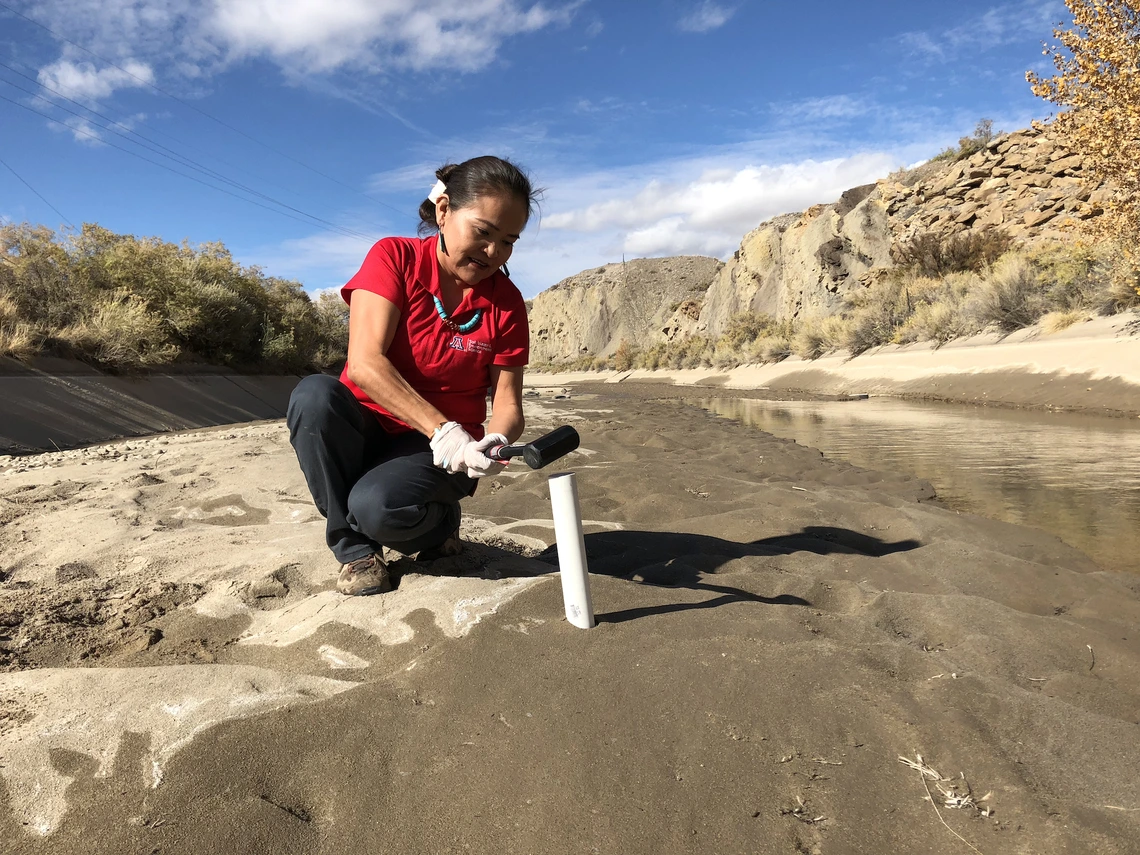Karletta Chief named to inaugural endowed professorship in Indigenous resilience

Karletta Chief, a renowned Diné hydrologist and director of the Indigenous Resilience Center, was named inaugural recipient of the Agnese Nelms Haury Endowed Professorship in Indigenous Resilience for her contributions to the fields of hydrology, Indigenous resilience, environmental justice and climate change outreach and research.
Karletta Chief, a renowned Diné hydrologist and director of the University of Arizona Indigenous Resilience Center, is the inaugural recipient of the Agnese Nelms Haury Endowed Professorship in Indigenous Resilience.
The center and the Agnese Nelms Haury Program, both units in the U of A's Arizona Institute for Resilience, announced the professorship earlier this month. The center, known as IRes, was founded in 2021 with a vision to help Native American communities lead sustainable environmental solutions. The center's team of faculty, staff and community members has raised over $28 million to help address the challenges that tribal communities face.
The endowed professorship is the latest milestone from the Haury Program, which was created in 2014 with a major gift from the heiress and philanthropist Agnese Nelms Haury to the University of Arizona Foundation. Haury passed away in 2014.
The program's mission honors her vision by supporting university, tribal and community programs and people working to address the adverse impacts of climate change on the environment and on human and nonhuman life. Since 2020, the Haury Program has focused its work on supporting Indigenous Resilience in particular.
The endowed professorship represents the Haury Program's commitment to strengthening the U of A's capacity to recruit and retain global experts in Indigenous environmental resilience, said Toni Massaro, Haury Program executive director. With a primary focus on addressing water access, energy and food challenges that affect tribal communities, the professorship will continue the program's efforts to co-create climate adaptation solutions that lead with respectful tribal engagement and that blend education and research with Indigenous cultural values.
"This is a beautiful inflection point for the Haury Program, as we build upon our first 10 years and set our sights on addressing the environmental resilience challenges before us," said Massaro, who is also a U of A Regents Professor Emerita of law, Milton O. Riepe Chair in Constitutional Law Emerita and dean emerita of the James E. Rogers College of Law.
"We are delighted that this endowed professorship is now a reality, and that Dr. Chief will be its inaugural holder," Massaro added. "Our university's ability to achieve its highest goals for the communities we serve depends upon our ability to recognize and support faculty leaders of Dr. Chief's caliber."
The professorship recognizes Chief's contributions to the fields of hydrology, Indigenous resilience, environmental justice and climate change outreach and research, as well as her nationally recognized ability to forge trust-based relationships with tribal leaders and experts, designing and implementing applied research solutions, and student training programs that honor tribal sovereignty and that respect Indigenous resilience knowledge.
"It is an honor to be the first recipient of this award," Chief said. "Having the professorship live within the Indigenous Resilience Center will allow us to support experts who are working with tribes based on the values of relationship, respect, reciprocity and responsibility."
As the founding director of IRes, Chief has built transformative partnerships with tribal nations, secured major research grants, and mentored the next generation of Indigenous scientists and leaders.
"Quite often we see these endowed professorships in other regions of the world, especially within Canada. We are very thankful of the Agnese Nelms Haury Program for breaking down barriers and allowing Dr. Chief to hold this new professorship," said Daniel Sestiaga Jr., IRes assistant director. "We have been truly blessed to have a supporter like the Haury Program and its team, who are invested in the center's success, vision, mission, and the overall dedication to ensuring that tribes have access to area expertise that is so relevant to today's environmental and societal challenges."





